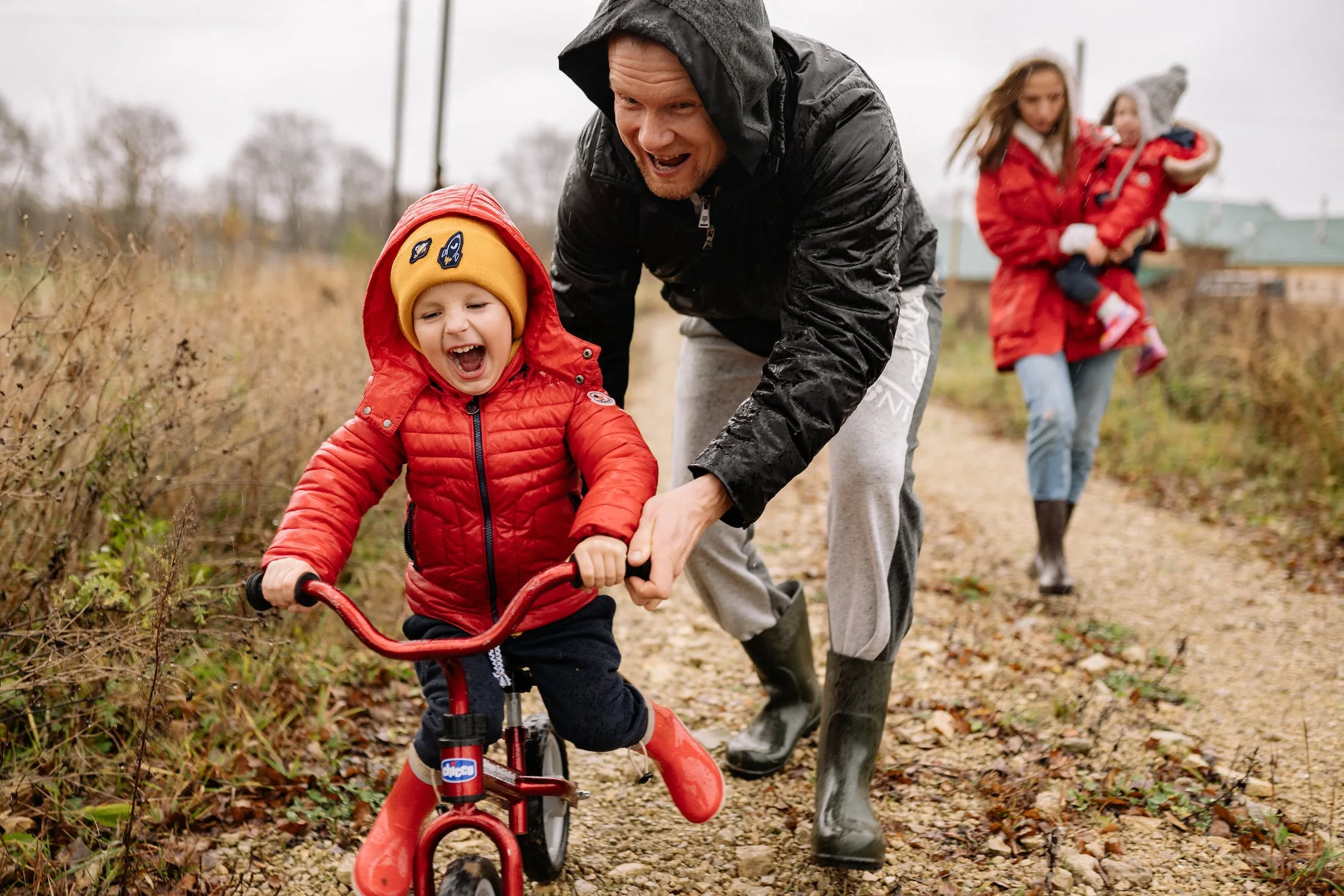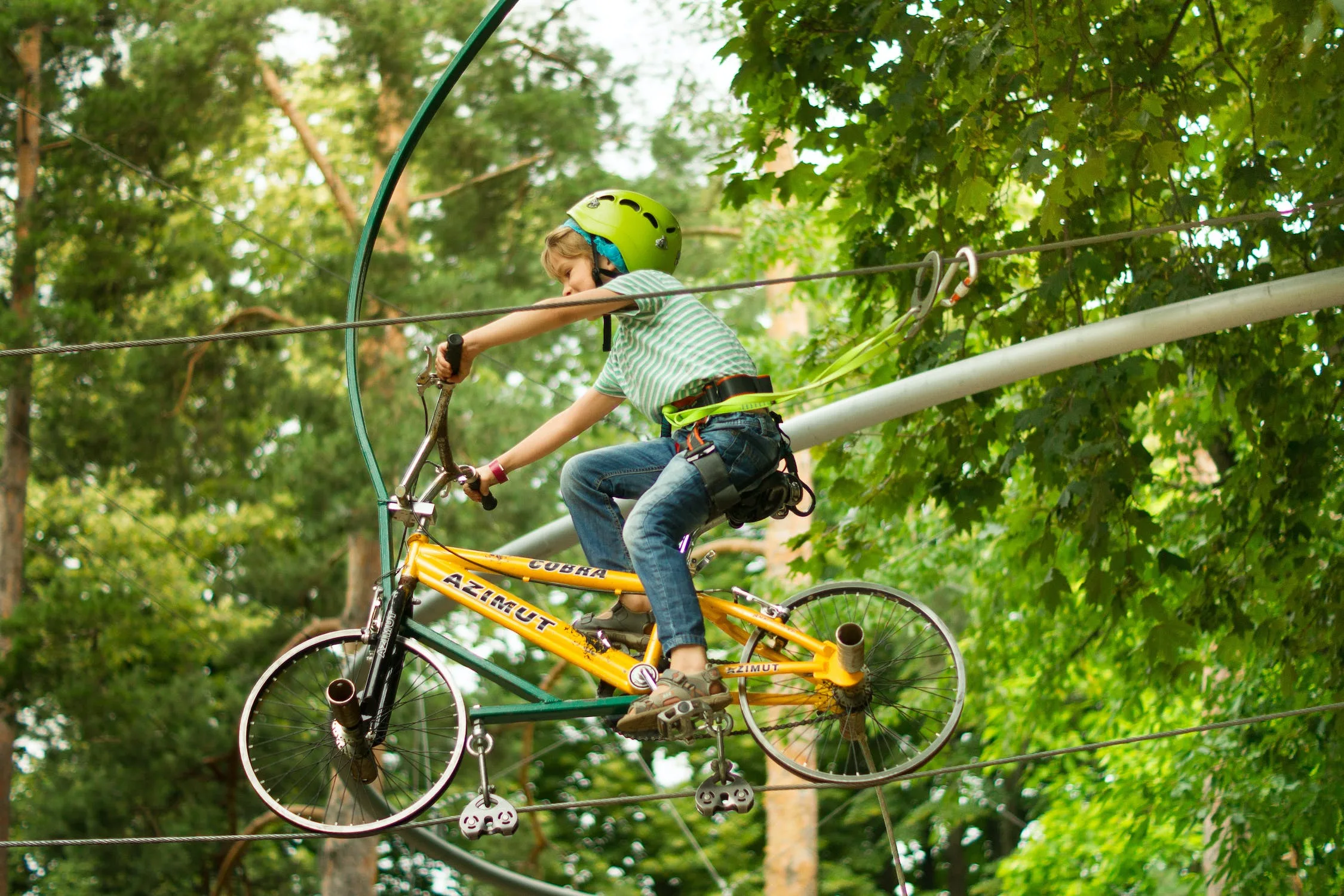Building Self-Esteem In Children: Uncover Their Inner Confidence
Introduction
You know that feeling when you see a child beam with confidence and self-assurance? It’s like they have an inner light shining so brightly that it seems to radiate from their very core. As someone who cares deeply for children, you want nothing more than to help them feel this way about themselves all the time.
Building self-esteem in children is one of the most important things you can do as a caregiver or parent. It sets them up for success in all areas of life, and helps them navigate challenges with resilience and grace.
But what exactly is self-esteem, and how can you help children develop it? Self-esteem refers to how much we value ourselves and believe in our abilities. When children have healthy levels of self-esteem, they are more likely to take risks, try new things, and bounce back from failure. On the other hand, low self-esteem can lead to feelings of anxiety, depression, and inadequacy.
In this article, we’ll explore strategies for boosting self-esteem in children so they can unleash their inner confidence and thrive in all areas of life.
Understanding the Importance of Building Self-Esteem in Children
Like a plant needing water and sunlight to grow, having a healthy sense of self-worth is essential for kids to flourish and thrive. As parents, teachers, or guardians, we play an important role in nurturing our children’s self-esteem.
The importance of building self-esteem in children goes beyond just boosting their confidence levels; it has long-term benefits that can shape their future. Children who have high self-esteem tend to be more resilient and adaptable to challenges they may face in life. They are better equipped to handle stress and are more likely to set ambitious goals for themselves.

Moreover, studies have shown that low self-esteem can lead to mental health issues such as anxiety and depression. Therefore, it is crucial that we actively work towards instilling positive beliefs about themselves in our children from an early age. Identifying signs of low self-esteem in children can help us intervene at the right time before it becomes a bigger problem for them.
Identifying Signs of Low Self-Esteem in Children
When it comes to identifying signs of low self-esteem in your child, there are a few key behaviors to watch out for. First, negative self-talk can be a red flag that your child is struggling with their self-image.
Additionally, if they consistently avoid challenges or seem reluctant to try new things, this may also be an indication of low self-esteem.
Finally, constantly seeking approval from others could suggest that your child is not confident in their own abilities and needs reassurance from external sources.
By being aware of these signs and taking steps to address them, you can help boost your child’s confidence and promote healthy self-esteem.
Negative Self-Talk
It’s important to recognize and address negative self-talk in children as it can lead to low self-esteem, anxiety, and depression. Negative self-talk refers to the internal dialogue that a child has with themselves and can be harmful if it becomes a habitual pattern of thinking. Overcoming negative self-talk is essential for building self-esteem in children.
Here are some signs that your child may be engaging in negative self-talk:
- They frequently put themselves down
- They have difficulty accepting compliments
- They often compare themselves negatively to others
- They use absolute terms like “always” or “never” when describing their abilities or behavior
- They blame themselves for things outside of their control
As a parent, teacher, or caregiver, you can help your child overcome negative self-talk by first identifying when they engage in this behavior. You can then encourage them to reframe their thoughts and language into more positive statements. Additionally, modeling positive self-talk yourself can show your child how to speak kindly about oneself.

When children engage in negative self-talk, they tend to avoid challenges because they don’t believe they are capable of succeeding.
In the next section, we’ll discuss ways to help your child overcome this avoidance of challenges and develop a growth mindset.
Avoidance of Challenges
You can help your child overcome their fear of challenges and develop a growth mindset by understanding the impact it has on their emotional well-being.
It’s natural for children to seek comfort and avoid challenges as they feel safe in familiar situations. However, avoiding challenges can lead to a lack of confidence and low self-esteem, which can hinder your child’s personal growth.
Building self-esteem in children is also means to build resilience and embrace failure, encourage your child to step outside of their comfort zone.

Start with small challenges that are achievable but still require some effort. Celebrate their efforts regardless of the outcome, as this will teach them that success is not just about winning but also about learning from mistakes.
As they grow more comfortable with taking on new challenges, gradually increase the difficulty level so that they continue to push themselves further.
By helping your child overcome avoidance of challenges, you are building self-esteem in children and a foundation for them to become confident individuals who are not afraid to take risks and learn from failures.
This will equip them with skills necessary for future success in all areas of life.
In the next section, we’ll discuss another common issue that affects building self-esteem in children seeking constant approval from others.
Seeking Constant Approval
If your child constantly seeks approval from others, they may struggle with developing a strong sense of self and may base their worth on external validation. This behavior can stem from a variety of root causes, such as feeling insecure or anxious, lacking confidence in their abilities, or experiencing excessive pressure to succeed.
Seeking constant approval can also be a way for children to avoid making mistakes or facing challenges that may damage their self-esteem.
Building self-esteem in children is to build resilience and help your child overcome the need for constant approval, it’s important to explore the underlying causes of this behavior. Encouraging open communication and creating a safe space for your child to express their thoughts and feelings can help them develop stronger self-awareness and identify areas where they need support.
Additionally, helping your child set achievable goals and celebrating their successes along the way can provide positive reinforcement that encourages them to focus on internal validation rather than seeking external approval.

Finally, modeling healthy behaviors yourself by setting boundaries with others, expressing confidence in your own abilities, and embracing failure as an opportunity for growth can show your child how to build true inner confidence without relying on outside validation.
As you consider ways to foster healthy building self-esteem in children, it’s important to keep these strategies in mind while exploring additional tips for building resilience and promoting positive self-image.
Strategies for Building Self-Esteem In Children
When it comes to building self-esteem in children, there are a few key strategies to keep in mind. One is encouraging positive self-talk, which means helping your child focus on their strengths and abilities rather than their weaknesses or mistakes.
Another is praising effort, not just results – this helps your child understand that hard work and persistence are valuable qualities.
Additionally, encouraging independence and setting realistic goals can help your child build confidence in themselves and their abilities.
Keep these strategies in mind as you work in building self-esteem in children and unleash their inner confidence.
Encouraging Positive Self-Talk
Boosting the way kids talk to themselves can help them feel better about who they are. One effective strategy for doing this is encouraging positive self-talk.
Teach your child to use positive affirmations, such as ‘I’m capable’ or ‘I’m loved,’ when faced with difficult situations. This helps them replace negative thoughts with more optimistic ones, which can lead in building self-esteem in children.
Another way to encourage positive self-talk is through fun and engaging building self-esteem in children activities. For example, have your child write down five things they like about themselves or create a vision board filled with images that inspire confidence and positivity.
These activities not only foster a more positive mindset but also provide an opportunity for you to reinforce your child’s strengths and accomplishments.
Transitioning into the next section, it’s important to remember that praising effort, not just results, is another key component of strong building self-esteem in children.
Praising Effort, Not Just Results
By acknowledging their hard work and dedication, you can inspire a sense of accomplishment within your kids that goes beyond mere success. Encouraging growth and praising progress are essential in building self-esteem in children.
When your child puts in effort towards achieving a goal, take the time to recognize it. Whether they achieve the desired outcome or not, recognizing their dedication and effort is crucial in boosting their confidence.
Fostering resilience and embracing mistakes is also an important aspect of praising effort rather than results. Children should be taught that making mistakes is a part of learning, and it’s what helps them grow. By encouraging them to keep trying even when things get tough, you’re teaching them resiliency.
Praising effort over results allows children to focus on the process rather than just the outcome, which ultimately leads to a more confident and well-rounded individual. As you continue to build on these principles with your child, they’ll begin to develop independence in tackling new challenges without fear of failure or disappointment.
Encouraging Independence
Encouraging independence is the key to unlocking your child’s full potential and unleashing their unstoppable spirit. Teaching responsibility and developing decision-making skills are crucial in this process.
As a parent, you may feel the need to constantly guide and control your child’s every move, but it’s essential to give them space to make their own decisions. This is important in building self-esteem in children as they will feel confident in their abilities and trust themselves.
Allowing your child to take on tasks that they can handle with some guidance will foster their independence and it is also a way of building self-esteem in children. For example, you can encourage them to dress themselves or pack their own bags for school. These small accomplishments will give them a sense of pride and self-assurance.
As they grow older, you can gradually increase the level of responsibility given to them by letting them make choices about extracurricular activities or household chores. Allowing your child to develop these skills early on will set a strong foundation for future success.
Encouraging independence is just one step towards building self-esteem in children. The next step is setting realistic goals that align with their interests and strengths without overwhelming them with pressure.
Setting Realistic Goals
Get ready to help your child achieve their dreams by setting achievable goals that match their abilities and passions. Setting realistic goals is an important step in building self-esteem in children.
When children are able to accomplish the goals they set for themselves, it helps them develop resilience and overcome setbacks. It’s important to encourage your child to set goals that are challenging but attainable. This will help in building self-esteem in children as they see themselves making progress towards achieving their dreams.
As a parent, you can help your child break down larger goals into smaller, more manageable steps. Celebrate each small victory along the way and use any setbacks as opportunities for growth and learning. By helping your child set realistic goals, you’re giving them the tools they need to succeed in life.
Now let’s move on to creating a supportive environment where your child can thrive.
Creating a Supportive Environment
To create a supportive environment for your child, it’s important to provide unconditional love and avoid making comparisons.
By accepting your child for who they are, you allow them to develop their own sense of worth and confidence.
Encouraging individuality also helps your child feel valued and appreciated for their unique abilities and personality traits.

Remember that building self-esteem in children starts with creating a positive atmosphere where they can thrive and grow into their fullest potential.
Providing Unconditional Love
You can show your child that they’re loved for who they are, not just for what they do or how well they perform. Unconditional love is the foundation of building self-esteem in children.
When children feel loved and supported regardless of their achievements or failures, it helps them to develop confidence in themselves and their abilities.
Nurturing a child’s sense of self-worth through love and support means accepting them for who they are as individuals. It means encouraging them to pursue their passions and interests without judgment or criticism.
By providing unconditional love, you’re creating an environment where your child feels safe to express themselves freely, which can help building self-esteem in children.
Remember that every child has unique strengths and weaknesses, so avoid comparing them to others. Instead, focus on celebrating their accomplishments and helping them grow through challenges.
Avoiding Comparisons
Now that you understand the importance of providing unconditional love to your child, it’s time to move on to the next step in building self-esteem in children: avoiding comparisons. Comparisons can be incredibly harmful to a child’s confidence and sense of self-worth.
When you constantly compare your child to others, whether it be siblings, classmates, or even yourself at their age, you send them the message that they are not good enough as they are. Instead of making comparisons, try focusing on alternative approaches.
Encourage your child to set goals for themselves based on their own interests and abilities rather than trying to measure up to someone else’s standards. Celebrate their unique strengths and talents and help them develop skills in areas where they may struggle. By doing so, you will teach your child that success is not about being better than others but about reaching their own personal potential.
As you continue on this journey of building self-esteem in children, remember that each individual has something special to offer the world. In the next section, we will explore how encouraging individuality can help unleash your child’s inner confidence without stifling their natural creativity and curiosity.
Encouraging Individuality
Discovering and embracing your child’s unique qualities and talents can cultivate a strong sense of self-worth, allowing them to confidently navigate their world. Celebrating uniqueness is crucial in building self-esteem in children. It encourages them to develop their own identity and helps them understand that they’re special just the way they are.
By fostering creativity, you can help your child express themselves in ways that make them feel good about who they are. Encouraging individuality means giving your child the freedom to explore different activities, hobbies, or interests. This allows them to discover what they like and don’t like without feeling pressured to conform to societal norms or expectations.
By doing so, you not only help building self-esteem in children, but also enable them to connect with others who share similar passions. In nurturing self-esteem as children grow, it’s important to continue supporting their growth by providing opportunities for learning and exploration while also being there for emotional support when needed.
Nurturing and Building Self-Esteem In Children As They Grow
As you continue in nurturing and building self-esteem in children, it’s important to keep in mind some key points that are relevant for adolescents.
First, support them as they navigate the challenges of adolescence, and encourage healthy risk-taking behaviors that allow them to grow and learn from their experiences.

Additionally, role-modeling positive self-esteem behaviors can help your child see the value in taking care of themselves and their own needs. It is important for kids to see that their parents are the good role model.
By focusing on these three areas, you can help in uncovering a strong sense of self-confidence and building self-esteem in children that will serve them well throughout their teenage years and beyond.
Supporting Adolescents
You can help your teenager become more confident by providing a safe and supportive environment where they feel free to express themselves. Adolescence is a time of change, both physically and emotionally, and it can be challenging for teenagers to navigate the complexities of growing up. As a parent or caregiver, it’s important to offer your support and understanding as they go through this process.
Encouraging self-expression is one of the crucial way in building self-esteem in children as they will become adolescents in the future. Allow them the freedom to explore their interests and passions without judgment. Show interest in what they have to say, even if you don’t always agree with them.
Building resilience is another key factor in helping teenagers develop self-esteem. Encourage them to face challenges head-on and celebrate their successes along the way. By supporting them through difficult times, you are giving them the tools they need to overcome obstacles and emerge stronger than before.
As your teenager grows older, it’s natural for them to want to take risks and try new things. In the next section, we’ll explore how you can encourage healthy risk-taking that builds confidence rather than putting your child at risk.
Encouraging Healthy Risk-Taking
Encouraging healthy risk-taking is like giving your teenager wings to soar and explore the world around them. Taking risks is an important part of building self-esteem in children.
As a parent or caregiver, it can be challenging to find the right balance between encouraging risk-taking and keeping your child safe. However, allowing your child to take calculated risks can help them learn valuable life skills such as problem-solving, decision-making, and independence.

To encourage healthy risk-taking in your child, start by discussing potential risks with them. Talk about what they could gain from taking a particular risk versus what they may lose if things don’t go as planned. Additionally, provide opportunities for your child to try new things in a safe environment such as trying a new sport or hobby.
Finally, praise their efforts regardless of the outcome and help them understand that failure is a natural part of growth and learning.
By encouraging healthy risk-taking decisions, you are encouraging them in building self-esteem in children and resilience which will benefit them throughout their lives.
In the next section on role-modeling positive self-esteem behaviors, we’ll discuss how you can set an example for your child by demonstrating confidence in yourself and others around you.
Role-Modeling Positive Self-Esteem Behaviors
Let’s explore how to model healthy self-esteem behaviors for your teen by showing them that it’s okay to make mistakes and that you believe in their abilities. Role modeling confidence behaviors is crucial because children learn more from what they see rather than what they are told.
So, when you exhibit positive self-talk, celebrate your achievements, and take care of yourself physically and mentally, your child will learn to do the same.

Teaching self-care practices can also help building self-esteem in children. Encourage your child to prioritize their well-being by eating a balanced diet, exercising regularly, getting enough sleep, and taking breaks when needed. By doing so, they will feel better about themselves both physically and mentally and develop a sense of independence that will bolster their confidence.
Additionally, teach them how to manage stress through relaxation techniques such as deep breathing or meditation. These skills will empower them to tackle challenges with a clear mind and strong sense of self-worth.
Frequently Asked Questions
How does building self-esteem in children affects their academic performance?
If a child has low self-esteem, it can negatively impact their academic performance. When children don’t believe in themselves, they may be less likely to take risks or try new things, leading to missed opportunities for learning and growth.
However, there are strategies parents and educators can use in building self-esteem in children through positive reinforcement. This might include praising effort rather than just results, helping children set achievable goals, and celebrating even small successes.
By building up a child’s confidence and belief in themselves, they’re more likely to approach learning with enthusiasm and achieve greater academic success.
Can a child’s self-esteem be improved through physical activities?
Are you looking for ways to improve in building self-esteem in children? Outdoor activities and team sports can be a great way to boost their confidence!
Not only do physical activities promote healthy habits, but they also provide opportunities for children to challenge themselves and work together with others. Through these experiences, children learn the value of teamwork, perseverance, and resilience.
As they develop new skills and achieve goals, their sense of self-worth grows stronger. So why not encourage your child to try a new sport or activity today? You never know how much it could impact their inner confidence!
What role do parents play in the development of a child’s self-esteem?
As a parent, you play a crucial role in the development of building self-esteem in children. Parental support, encouragement, and modeling can help boost their confidence and sense of worth. Positive reinforcement is also essential to reinforce good behavior and accomplishments.
Effective communication is key to understanding your child’s needs and feelings, which helps build trust and strengthens the parent-child bond. By providing a safe and supportive environment, you can foster an atmosphere that promotes healthy self-esteem in your child.
Remember that building self-esteem takes time and effort, but with patience, consistency, and love, you can help unleash your child’s inner confidence.
Is it possible for a child to have too much self-esteem?
Having too much self-esteem can potentially lead to negative consequences for a child. While it’s important to help your child build confidence and believe in themselves, balancing that with humility and empathy is crucial.
When a child has an inflated sense of self-worth, they may struggle with accepting criticism or failure, have difficulty working well within a team, and even become arrogant or entitled. As a parent, it’s important to encourage your child to strive for their goals while also teaching them the value of hard work, kindness towards others, and being open-minded.
By helping your child maintain a healthy balance between confidence and humility, you are setting them up for success both personally and professionally in the long run.
How can teachers contribute to building a child’s self-esteem in the classroom?
As a teacher, you’ve got a crucial role in building your students’ self-esteem. One effective strategy is to provide frequent positive feedback and encouragement, focusing on effort rather than just results.
You can also create opportunities for students to showcase their skills and talents, such as through presentations or class projects. Additionally, promoting collaboration and teamwork can help students feel valued and appreciated by their peers.
Creating a safe space where all opinions are respected and bullying is not tolerated is also essential for building self-esteem in the classroom. By incorporating these teacher strategies into your teaching approach and fostering a positive learning environment, you can make a significant impact on your students’ self-esteem and overall well-being.
Conclusion
Congratulations! You’ve just finished reading about building self-esteem in children. Now, it’s time to take action and apply what you’ve learned.
Remember that self-esteem is essential in shaping a child’s future, so it’s crucial to identify signs of low self-esteem and start boosting their confidence.
Think of yourself as a gardener who has the responsibility of nurturing a seedling. Just like how you water and provide nutrients for the plant to grow, you need to create a supportive environment for your child to flourish.
Don’t forget to use positive reinforcement and celebrate small victories along the way. By doing this, you’ll unleash their inner confidence, helping them achieve great things.
In conclusion, building self-esteem in children requires patience, effort, and commitment. It may not be an easy journey; however, remember that every step counts towards creating a brighter future for your child.
Keep watering your garden with love and care – soon enough, it’ll bloom into something beautiful beyond imagination.







